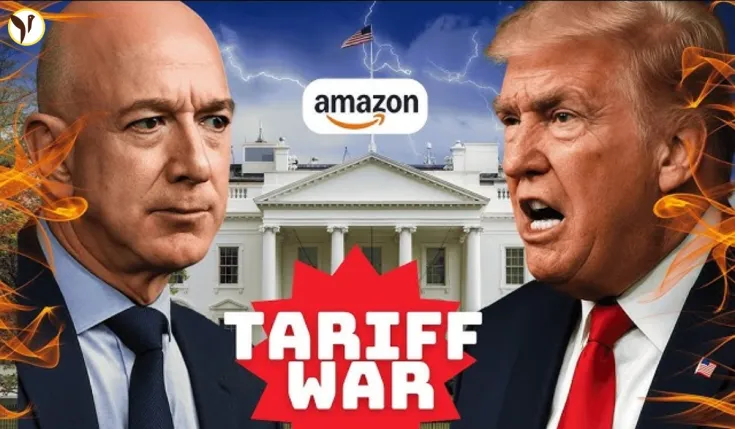Amazon Tariffs: A Political Firestorm
A recent report ignited a political firestorm, accusing Amazon of planning to show customers exactly how much President Trump's tariffs were adding to the price of products. The ensuing clash between Amazon and the White House offers a fascinating glimpse into the complex world of international trade and its impact on consumers and businesses alike.
The Punchbowl News Report and White House Backlash
The controversy began with a report by Punchbowl News claiming Amazon would soon display tariff costs alongside product prices. This triggered a furious response from the White House, with Press Secretary Karoline Leavitt calling the idea a "hostile and political act." The White House questioned the timing, asking why Amazon hadn't done this when the Biden administration was dealing with high inflation. The criticism was swift and harsh.
Amazon's Denial and Clarification
Amazon swiftly denied the report. Spokesperson Tim Doyle stated that the idea of displaying import charges had been considered by the team managing Amazon Haul, a low-cost store, but was never approved and would not be implemented. This clarification seemingly quelled the immediate outrage, but the damage was done. The story highlighted the significant impact tariffs have on businesses and consumers, even if indirectly.
The Broader Context of Trump's Tariffs
President Trump's reintroduction of tariffs, including a baseline 10% tariff on most countries and higher levies on specific nations, has created significant uncertainty in the business world. While some tariffs have been temporarily paused, others, particularly those targeting Chinese imports, remain in effect. This ongoing trade war has led to retaliatory tariffs from China, creating a ripple effect across global supply chains.
Impact on Businesses
The economic consequences are undeniable. The uncertainty surrounding tariffs has forced businesses to adjust their strategies, impacting everything from pricing and sourcing to employment. Logistics giant UPS announced plans to cut 20,000 jobs, citing a decrease in shipping volume from Amazon, its largest customer. This underscores the far-reaching consequences of trade policies on various sectors.
Trump's Intervention
Adding another layer to the drama, President Trump himself reportedly called Amazon founder Jeff Bezos to express his displeasure. Trump later described the call as "good" and praised Bezos for a quick resolution to the issue. This intervention highlights the high stakes involved and the close relationship between the White House and major corporations.
The Future of Tariffs and Their Impact on Consumers
The evolving trade landscape remains uncertain. While Amazon's decision to not display tariff costs directly on its main website avoids a public relations nightmare, the underlying issue of tariff impacts on pricing persists. Consumers will likely continue to feel the effects of increased costs, even without explicit labeling on product pages. The debate over tariffs, their economic impact, and their political ramifications will undoubtedly continue to be a significant aspect of economic discussions.
Key Takeaways
- Amazon denied plans to display tariff costs on its main website.
- The White House strongly criticized the initial report, labeling it a political act.
- President Trump's tariffs continue to have a significant impact on businesses and consumers.
- Uncertainty surrounding tariffs is leading to adjustments in business strategies and potential job losses.
- The debate over tariffs and their impact is far from over.
Stay informed about the latest developments in the ongoing trade discussions to understand better how they may impact your purchases and the economy as a whole.






